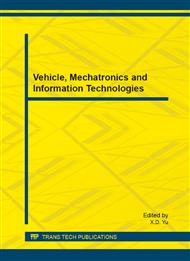p.2822
p.2827
p.2831
p.2837
p.2841
p.2845
p.2850
p.2854
p.2858
Task Scheduling Algorithm Research in Grid Computing
Abstract:
This paper studies effective task scheduling problem in the process of grid computing. Generally, task scheduling in the process of grid computing can be realized in shorter time, which guarantees the efficiency of task scheduling in grid computing. Traditional algorithm can not fully consider the resources load balance in calculating task scheduling in grid computing, resulting in network resources idleness. Finally, it can't reasonably use network resources. In order to avoid the above defects, this paper proposes a task scheduling method in grid computing based on double fitness particle swarm optimization algorithm. In the process of grid computing, channel perception method is applied to forecast the amount of grid computing tasks in the channel so as to provide the basis for task scheduling in grid computing. Realize task scheduling in grid computing by the use of double fitness particle swarm optimization algorithm. Experimental results show that under the condition of larger tasks of grid computing, the performance of task scheduling in grid computing by using the algorithm presented in this paper is superior to the traditional particle swarm optimization algorithm and can get ideal task scheduling result.
Info:
Periodical:
Pages:
2841-2844
Citation:
Online since:
August 2013
Authors:
Keywords:
Price:
Сopyright:
© 2013 Trans Tech Publications Ltd. All Rights Reserved
Share:
Citation:


